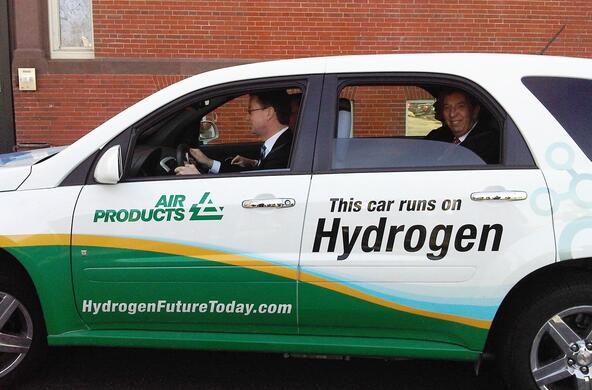About 15 years ago, the Environmental Protection Agency instituted the Renewable Fuel Standard (RFS) for cars to reduce our nation’s emissions of carbon dioxide to the atmosphere by increasing the use of renewable liquid fuels derived from biomass. First, you grow a crop, such as corn, which removes carbon dioxide from the atmosphere, and then you return the carbon dioxide to the atmosphere when you burn biofuel made from corn in place of gasoline. Ideally, with this closed cycle, there is no net emission of carbon dioxide to the atmosphere.
Since its institution, the RFS has usurped a vast amount of the annual corn crop in the United States, with huge economic and environmental impacts. The RFS increased corn prices by 30%, which expanded US corn cultivation by 2.8 million hectares (8.7%) and total cropland by 2.1 million hectares (2.4%) since the policy was enacted. Prairie wetlands were converted to agriculture, lowering their potential as wildlife habitat and eliminating their role as carbon sinks. The price of corn for cereal, cattle feed, and bourbon went up.
The RFS increased fertilizer use by 3 to 8% and increased the release of chemicals that degrade water quality by 3 to 5%. Impacts are seen far from the “corn belt,” affecting the Great Lakes (https://blogs.nicholas.duke.edu/citizenscientist/phosphorus-in-lake-eri… ) and extending down the Mississippi River to the Gulf of Mexico (Nitrogen in the Mississippi – Translational Ecology (duke.edu)).
Carbon dioxide emissions from soils increased, such that the carbon intensity of corn ethanol produced under the RFS is likely to be at least 24% higher than for gasoline. No doubt, biofuels have had huge economic benefits to the agricultural sector, but they are associated with increased emissions of greenhouse gases to the atmosphere, lower water quality, and lower biodiversity.
Most of us have seen notices at the gas station indicating that the fuel we pump contains ethanol. Conceived as a program to bring our nation to closed-loop recycling, the RFS will take generations to remediate.
References
Lark, T., and 8 others. 2022. Environmental outcomes of the US Renewable Fuel Standard. Proceedings of the National Academy of Sciences, U.S. 119 e2101084119






